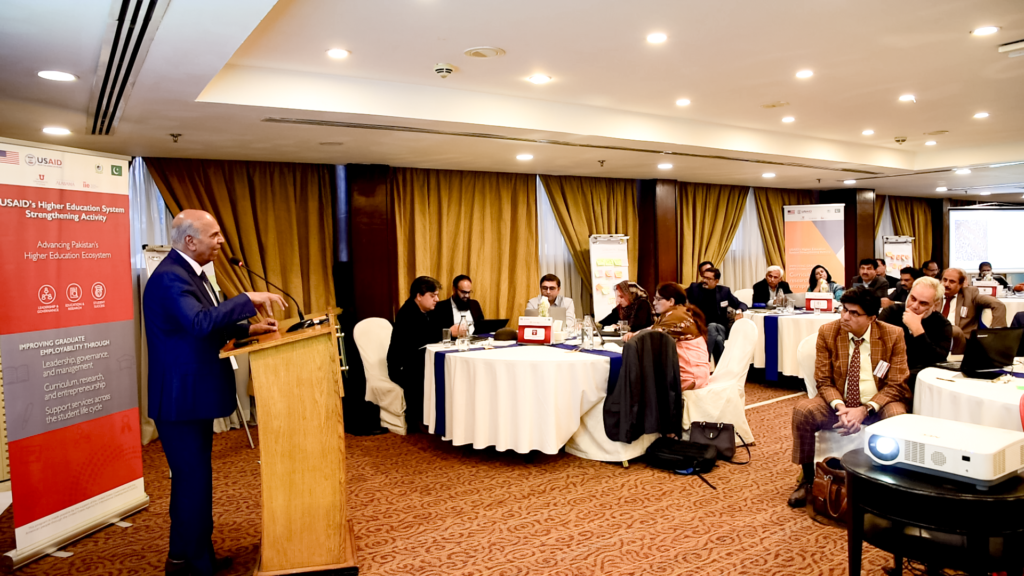
Preparing a strategic plan requires more than just the responsibility of a single administrator it requires vertical and horizontal coordination among internal and external stakeholders. This also requires consolidating several micro-plans such as academic plan, research plan, financial plan, students’ services plan, or sustainability plan. Pakistan’s higher education sector currently lacks a structured practice of preparing and implementing long-term plans for improving the institutional performance and governance of public sector universities. For this purpose, the USAID’s Higher Education System Strengthening Activity (HESSA), implemented by the University of Utah, engaged the Society of College and University Planning (SCUP) to support its 16 partner public sector universities in their effort to build capacity for strategic planning. SCUP is U.S.-based entity for higher education planners that creates opportunities to share resources, best practices, and fresh ideas that move challenges to solutions—building upon a culture of integrated planning.
This is the first time that a comprehensive program has been launched for the public sector HEIs in Pakistan to learn how to prepare a university-specific strategic plan through an inclusive process. The experienced international experts leading this program are Dr. Michael Barber, Dr. Aslam Chaudhry, Dr. David Keida, and Dr. Mercedes Ward from the University of Utah; Dr. Ayesha Razzaque from the HESSA PMU and Randy Simon, Ray White, and Josh Humbel from SCUP.
An extensive training for approximately 100 senior officials including Pro-Vice Chancellors, senior Deans, Department Chairs, Registrars, Directors of Students Affairs, etc. representing all 16 partner institutions was organized from December 4-15, 2023 in Islamabad. Participants completed all three modules of the SCUP’s Planning Institute. The first training module, titled Foundations: Laying the Groundwork for Strategic Planning, covered the assessment of institutional context, identifying and analyzing stakeholders, internal and external scanning, and adapting integrated planning to an institution’s unique situation.
The second module, Design: Designing and Implementing a Strategic Plan went into depth on the process for building a plan. Topics included creating a vision, developing an integrated planning process, institutional alignment, and plan implementation. Through a combination of lectures and group activities, participants practiced planning tools and techniques that can be applied on their campus. Finally, participants concluded their week with the third module, Sustain: Sustaining an Integrated Planning Culture. The focus of this training module was to establish and nurture a culture of inclusive planning at their institution. Participants practiced skills in decision-making, managing conflict, and planning for the long range.
At the conclusion of the program, Dr. Aslam Chaudhry, Research Professor at the University of Utah and Associate Project Director of HESSA emphasized the importance of this initiative. He said, “Through HESSA’s support, all 16 partner HEIs will be able to prepare their university-specific strategic and business plans in the next 6-8 months. The University of Utah mentors will guide each HEI in this endeavor. The partner HEIs will be required to develop their schedule of strategic plan development, create key performance indicators, document each step of the process, constitute working groups to develop mini plans, and track their individual progress according to the identified indicators. These HEIs will become a role model for other universities across Pakistan to advance a culture of inclusive and sustainable development that can ensure an improved workforce development in the country.”
